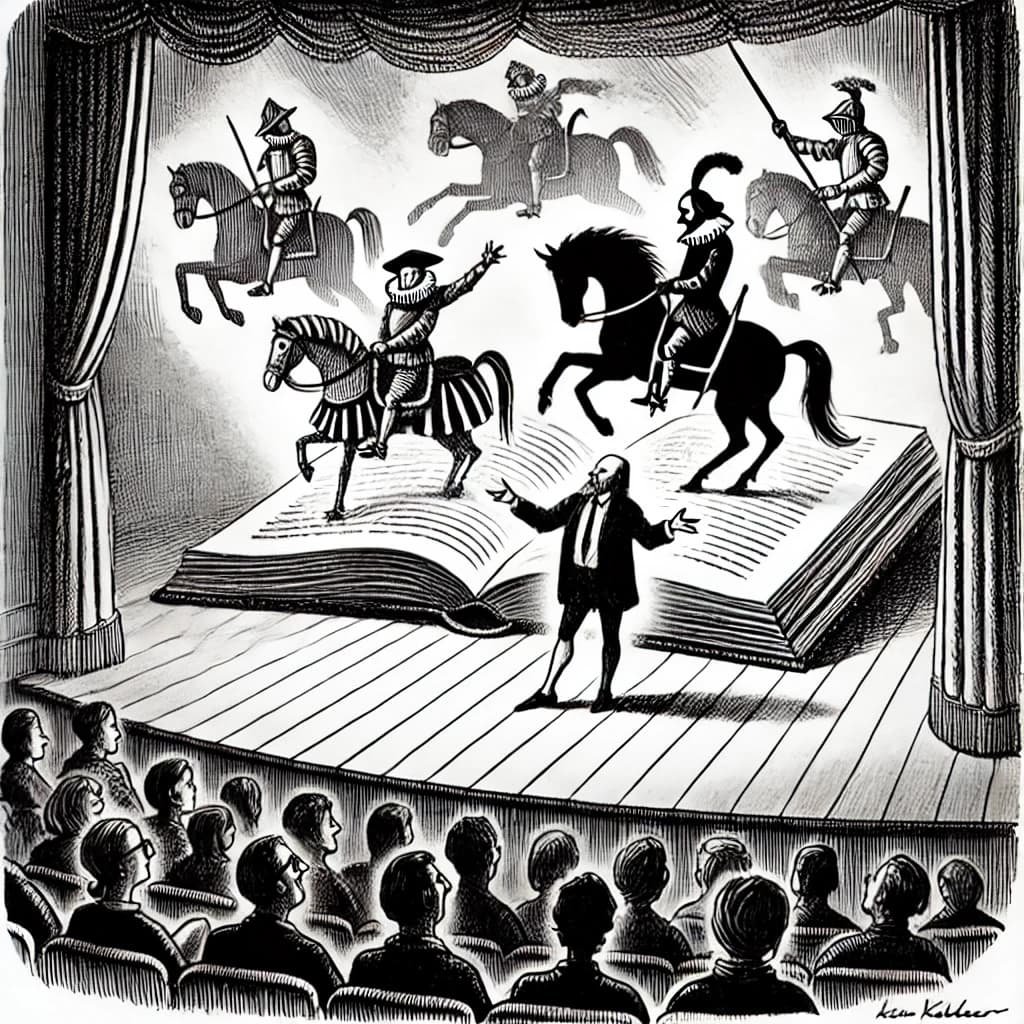I’m in a university class called “Studies in Shakespeare,” and we just finished Henry V. At the beginning of this play, Shakespeare teaches us how to make every book we read 1,000% better.
Before I share his tip, I need to set the stage (pun intended) by briefly describing Henry V.
Setting The Stage
Henry V is one of Shakespeare’s “War Plays” where he chronicles the adventures (and possible misadventures) of English conquest.
In Henry V, we follow the young King of England who believes he has a rightful claim to France’s throne. You’ve gotta love those power-hungry monarchs, presidents, tsars, etc.
The battle (which did happen) is historically famous because England was outnumbered by a large margin and still managed to gain control of France for a short time.
The English should have lost, but because of the King’s immutable leadership, they pulled through and won. Shakespeare decided to write about this event and realized that he had a problem:
- ✍🏽How do you capture this conquest in words? How do you possibly contain all the horror, suffering, subterfuge, courage, and madness of war on a theatrical stage without diluting it? You can’t.
Shakespeare knew there was nothing he could do to make the actions on stage comparable to real life. So, what did he do? He created a narrator (perhaps MC is more appropriate) called The Chorus who would teach the audience how to think while they watched the play.
The Chorus
🎭 A Chorus is used in drama all the time. It’s often a voice or character representing the general opinion of the characters in the play.
In Henry V, The Chorus gives a speech before each of the five acts. I’d like to direct your attention to the first speech before Act 1.
The Chorus admits that we’re about to read (or see on stage) a story that cannot be captured in words. He calls it “the swelling scene,” and wonders how we could dare to bring forth so great an object on this “unworthy scaffold,” meaning the stage.
This is where Shakespeare gives us the tip that will make our books 1,000% better. The Chorus asks us to let our “imaginary forces work.” For example, if actors on the stage talk about King Henry’s horse, it’s our job as readers to “see them printing their proud hoofs I’ th’ receiving earth.” We must take the time to close our eyes and imagine horses trampling the ground. If we don’t, the story will fall flat.
Our Job as Readers
Shakespeare admits the limits of the page. He can only do so much when telling a great tale. It’s up to us to slow down and use our imaginations. If we scan the text or speed read through the paragraphs, we won’t have time to let our imagination run wild. We won’t see the proud horses stamping the earth or feel their hot breath clouding the air.
Sure, we’ll have read Henry V and we can go to work tomorrow knowing we read some Shakespeare, but if we want to stand on that battlefield with Henry V, we must choose with every paragraph to suspend our disbelief, use our imaginations, and let the story take hold of our hearts.
That takes work on our part, but it’s worth it. How else could Harry Potter fly on a broom? Unless you do your job as a reader, Potter isn’t getting off the ground. 🧹
👋 Until next time, read slowly – take notes – apply the ideas.
-Eddy
